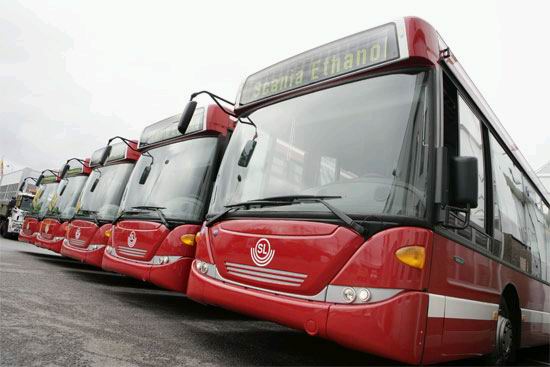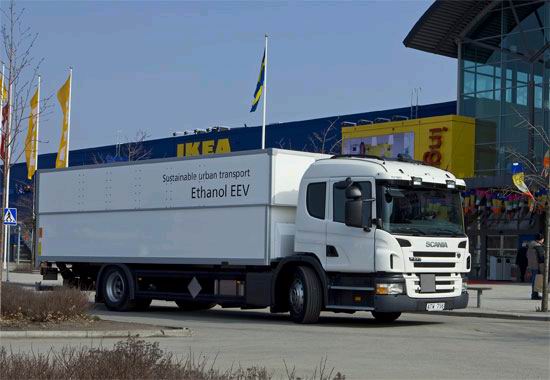Scania has sold 600 ethanol-powered buses
The problem of global warming has become increasingly urgent. Scania believes that the various alternative energy sources that are already present are not perfect, but we need to take immediate actions and actively apply them to practice. We will continue to explore and improve in practice. Scania is also working tirelessly towards this goal.

Scania-produced ethanol-powered buses
Scania recently delivered 60 biodiesel buses to Gothenburg, Sweden. These buses belong to Scania's OmniLink series, which is mainly two-axis or three-axis. They use rapeseed methyl ester (RME) as fuel, and their carbon dioxide emissions are zero. In June next year, the buses will begin operation, 18 buses will be used for urban public transport, and 42 buses will be put into intercity operations.
Europe has started to implement the Euro 1 emission standards, and now it has reached Euro 4 and Euro 5, and emissions of pollutants have become less and less. However, they cannot solve the issue of carbon dioxide emissions and the warming of the earth. Compared with traditional diesel engines, ethanol-powered cars have a 90% lower CO2 emissions.
In the middle of this year, Scania has delivered 85 ethanol-powered buses to Stockholm. These ethanol-powered buses will serve the public transport in Stockholm's North and South Districts. Of these, 40 are mainly used for city buses and the remaining 45 will provide intercity operating services. The buses that were delivered this time are equipped with Scania's third-generation ethanol engine. At present, Stockholm City already has the largest fleet of ethanol-powered buses in the world.
Scania has more than 20 years of experience in ethanol-powered buses and sold 600 ethanol-powered buses. Ethanol-powered vehicles have attracted worldwide attention. In recent years, Scania's ethanol-powered buses have also been used in Britain, Spain, Italy, Belgium, Norway and other countries.

In 2008, the ethanol truck was formally launched and equipped with a new type of ethanol engine. The emission complies with the Enhanced Environment-Friendly Vehicle (EEV) standard, which is more stringent than the Euro 5 standard. Two Swedish companies participated in the experiment. Ethanol trucks mainly travel in central Stockholm and complete short-distance distribution. After more than one year of experimentation, so far, very good results have been received.
In order to achieve sustainable urban transport development and improve urban air quality, Scania has continued to invest for a long time and has continuously researched and developed various alternative fuel vehicles, including ethanol, biodiesel, biogas, and hybrid power. Although the feasibility and development status of these fuels are different, Scania's efforts to find alternatives to fossil fuels, as well as practical applications and extensions, remain consistent.
View related topics: New energy vehicles: The magic weapon to deal with energy crisis